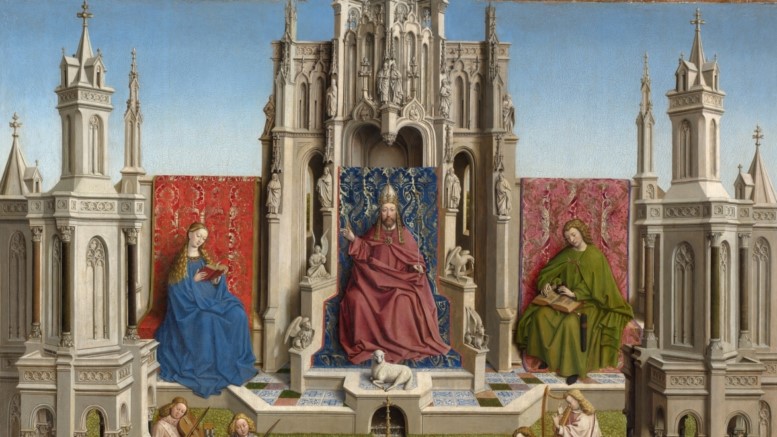
Originally published by: Círculo Tradicionalista Gaspar de Rodas de Medellín December 29, 2022
An article was sent to us from the Círculo Tradicionalista Gaspar de Rodas de Medellín by Federico Ezcurra Ortiz (†16 September 2020), who was president of the Carlos VII Traditionalist Brotherhood.
***
[…] The serious problem that, in my opinion, affects the Carlists who aspire to remain so without renouncing their adherence to the doctrines of the Second Vatican Council ─professed today by the current Vatican authorities and the majority of the world’s ecclesiastical hierarchies─ is that they find themselves caught in the deadly trap of a principled inconsistency, which sterilizes their doctrinal and practical actions, and limits them to minor matters and modest dynastic disputes, without noticing that the fight for the principles of political traditionalism ─necessarily and inalienably─ must today also be taken to the religious terrain within the very heart of the Catholic Church in order to clean up the basis on which to lay the solid foundations of its political update hic et nunc.
The healthy social order is a hierarchical order, which demands organic respect for those hierarchies, admirably expressed in the aforementioned Carlist motto: Dios, Patria, Fueros, Rey (God, Fatherland, Privileges, King). This clearly indicates that if one echelon is lacking, the lower echelons will irreversibly deteriorate.
In the case we are discussing, God indicates the Catholic, Apostolic and Roman religion. If the understanding of what that religion is, with all our obligations towards the Creator, is not perfectly clear, not only an important echelon is lacking, but so too is the very peak of the doctrinal pyramid of Carlism.
And the Catholic religion is located precisely there, at the hierarchical apex of that pyramid, because it is the germinal and nurturing root of Spain, that Spain that is not only based on the «Piel de toro» (a reference to the fact that the Iberian Peninsula resembles a bull’s skin stretched out along its length from West to East, so that the front part faces East, and across its width from North to South), but also encompasses all the members of Hispanidad, a fruitful product of their conquering and missionary spirit, unique in the entire history of humanity, and which today appears as though drugged by those doctrines ─so far from the truth, and therefore, from the Hispanic essence─ that have been artfully instilled into their bloodstream.
How then can one reconcile the hierarchical concept of the monarchy, of the fueros (privileges), of the fatherland and our dependence on the true God, One and Triune, that is, the salvific doctrines of the Catholic religion, with those revolutionary and Masonic principles of «Freedom», «Equality» and «Fraternity»? How can traditionalist thought be fruitful, since it will necessarily be split in two, pulled by the struggle of antagonistic principles? It will undoubtedly be a giant with feet of clay.
Carlist thought cannot, in my opinion, ignore in any way the serious crisis that today affects the Catholic Church, as a result of the pretense of introducing into its doctrinal heritage those disastrous principles. Principles that so many times and with so much authority and clarity were condemned by numerous and holy Pontiffs. Since, if we have not misunderstood the hierarchical progression of our motto, we will first be Catholics, then Hispanics, later forales (a people bound by regional privileges) and finally monarchists.
And not ignoring this crisis in the Church means, above all, not shying away from assuming the responsibilities that, as Catholics, fall upon us in the face of this crisis: clarifying our own ideas and those of others about the true Catholic doctrine, applying the golden rule of Saint Vincent de Lerins in order to discern the truth in the midst of this tremendous mess of heterodox novelties: «To believe what the Church has always believed, everywhere and by all;» resisting pernicious innovations within the Church (new mass, new liturgy, spurious doctrines…), frequenting the genuine sacraments ─not those that emerged after the Second Vatican Council, of doubtful validity; obtaining the necessary graces in order to face this fight, which portends to be fierce, and praying to the Blessed Virgin asking for her intercession before Our Lord in order to mitigate and shorten this period of trial, making propitiatory sacrifices for the same purpose.
The germ of the fecundity of Carlist thought is found, I have no doubt, in its adherence to the traditional doctrine of Catholicism, today attacked once again by its ancestral enemies, but this time from within the Church itself, with the help of many of her own children.
The betrayal has already been consummated… Let us not ourselves, by omission, be guilty of crimes against religion. And with the help of the Blessed Virgin, always present in Hispanidad under innumerable invocations, let us try ─I know that it seems humanly impossible─ to repeat the feat of the reconquest of Pelayo from Covadonga, despite the ecumenical proposals of the modern Oppas bishops, who with their siren songs propose us to lower our guard by agreeing with the enemy, thus ending up in a false religious unity through a new pluralistic cult, in the one that joyfully and irresponsibly we all congregate in a friendly heap.
All… except for Our Lord Jesus Christ.
Federico Ezcurra Ortiz.
Translation by Alférez Matthew Scullin, Círculo Carlista Camino Real de Tejas.



